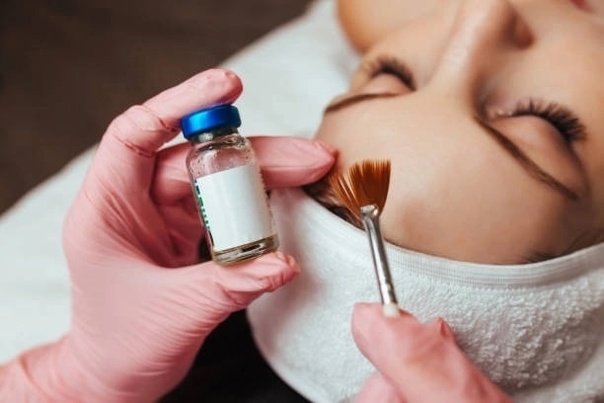Blotchy skin, characterized by uneven patches of discoloration, redness, or pigmentation, can affect anyone and undermine the confidence that comes with having a clear, even complexion. If you are struggling with blotchy skin, you might have wondered if chemical peels in Islamabad could be the solution to achieve smoother, more balanced skin.
Chemical peels are a popular dermatological treatment designed to exfoliate the skin, promoting new skin growth and improving its overall appearance. For more details on this treatment, visit chemical peels in Islamabad.
In this comprehensive guide, we’ll explore how chemical peels work to fix blotchy skin, what you can expect during the treatment, and essential aftercare tips to maximize your results.
What Causes Blotchy Skin?
Blotchy skin can result from a variety of factors, including:
- Sun damage: Prolonged UV exposure can cause uneven pigmentation and redness.
- Rosacea: A chronic condition that leads to redness and visible blood vessels.
- Hormonal changes: Fluctuations can trigger melasma or dark patches.
- Acne scars or inflammation: Can leave uneven tone or red marks.
- Dry skin: Can cause patchiness and a dull appearance.
Understanding the root cause helps in selecting the right treatment plan, and chemical peels are often recommended for many of these issues.
How Do Chemical Peels Work on Blotchy Skin?
Chemical peels use a solution containing acids (such as glycolic acid, salicylic acid, or trichloroacetic acid) to gently exfoliate the top layers of skin. This controlled exfoliation removes dead and damaged skin cells and stimulates the production of new, healthier skin.
Benefits for Blotchy Skin:
- Even Skin Tone: By peeling away damaged skin layers, chemical peels reduce pigmentation irregularities and red patches.
- Improved Texture: Peels smooth rough or uneven skin caused by dryness or scarring.
- Collagen Stimulation: Encourages firmer skin, reducing the appearance of fine lines and improving overall complexion.
- Reduced Redness: Certain peels can calm inflammation associated with blotchy skin.
Types of Chemical Peels Suitable for Blotchy Skin
There are different depths of chemical peels:
- Superficial Peels: Use mild acids like glycolic or lactic acid to exfoliate the outermost layer. Ideal for mild blotchiness and surface imperfections.
- Medium Peels: Use trichloroacetic acid (TCA) to penetrate deeper layers, treating more persistent pigmentation and texture issues.
- Deep Peels: Reserved for severe skin conditions and significant discoloration. These require longer recovery times and are performed by experienced dermatologists.
A professional dermatologist will assess your skin and recommend the appropriate peel type.
The Chemical Peel Procedure
Before the peel, your skin will be thoroughly cleansed to remove oils and makeup. The chemical solution is then carefully applied, and you may feel a mild stinging or tingling sensation, which usually lasts a few minutes.
Depending on the peel depth, the solution remains on your skin for a few minutes before being neutralized or washed off. You might notice your skin starting to tighten and eventually begin peeling over the next several days.
Recovery and Aftercare
Post-peel care is critical to achieving optimal results and protecting your skin during recovery:
- Avoid Sun Exposure: Your skin will be highly sensitive to UV rays. Use sunscreen daily and avoid direct sunlight.
- Moisturize: Keep your skin hydrated with a gentle moisturizer to reduce dryness and peeling.
- Gentle Cleansing: Use mild, non-abrasive cleansers to avoid irritation.
- No Picking or Scrubbing: Let the skin peel naturally to prevent scarring or infection.
- Follow-Up Treatments: Multiple sessions may be needed for best results, spaced according to your dermatologist’s advice.
Risks and Considerations
While chemical peels are generally safe, some risks include:
- Temporary redness and irritation
- Peeling and flaking
- Hyperpigmentation or hypopigmentation if aftercare isn’t followed properly
- Allergic reactions (rare)
Consult a certified dermatologist to ensure chemical peels are appropriate for your skin type and condition.
Why Choose Chemical Peels in Islamabad?
Islamabad hosts many clinics offering advanced skin treatments, including expert-led chemical peels. These clinics use high-quality products and tailor treatments specifically for your skin’s needs, ensuring safety and effectiveness.
Choosing a trusted clinic is essential to avoid complications and achieve lasting results. If you want to explore your options, check out chemical peels in Islamabad for expert care and consultation.
Conclusion
Chemical peels can be a powerful treatment to fix blotchy skin by removing damaged layers and promoting even, healthy skin growth. When done under professional supervision and paired with proper aftercare, chemical peels in Islamabad offer a safe and effective path toward a clearer complexion.
 WhatsApp Us Now
WhatsApp Us Now







